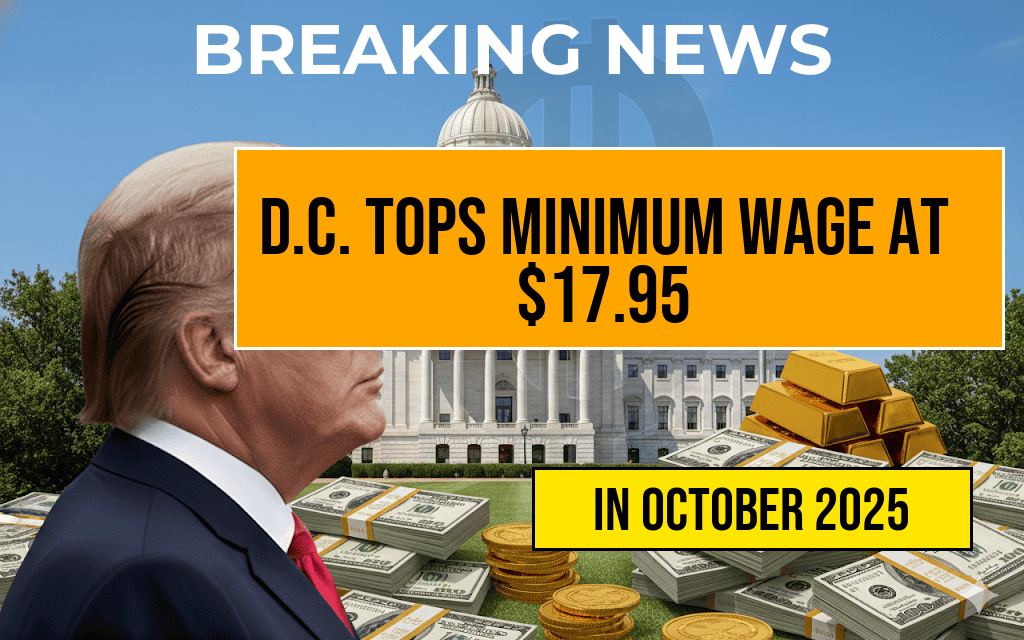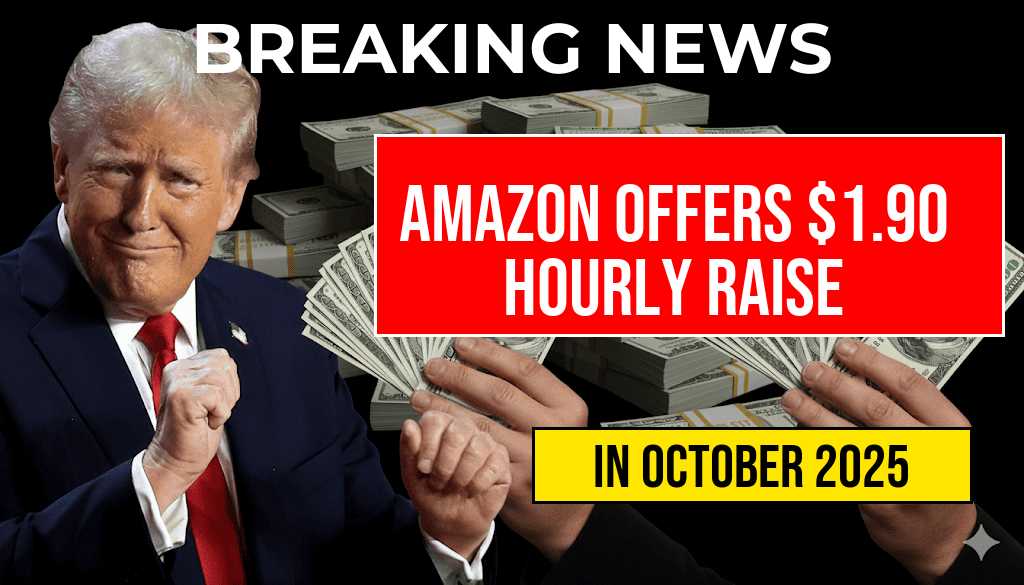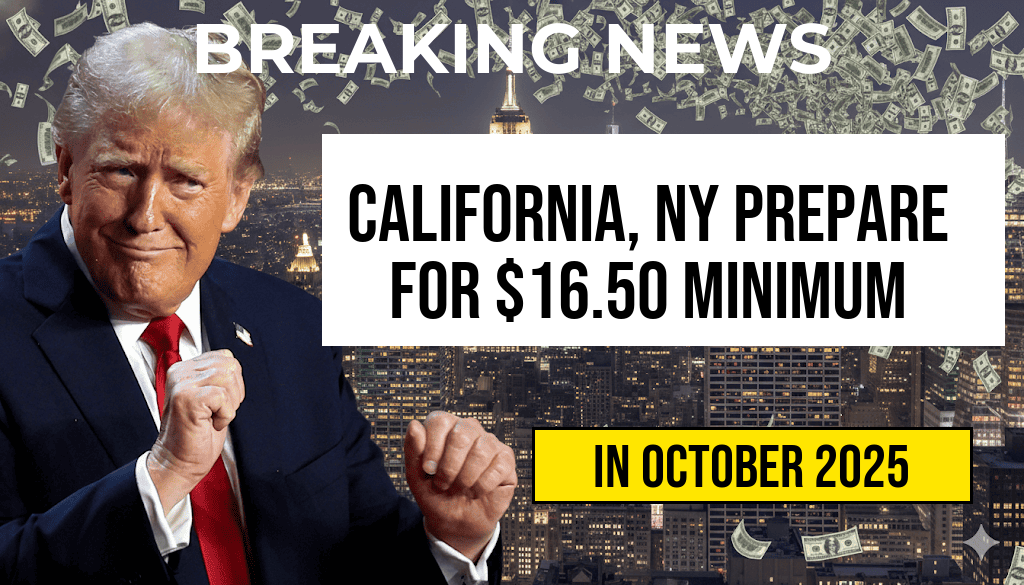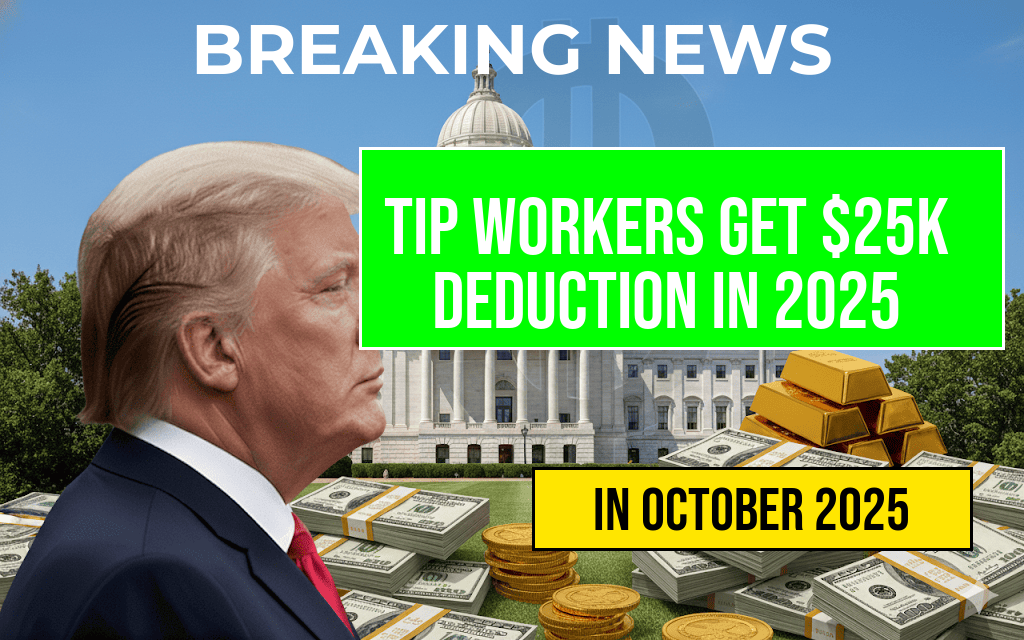Washington D.C. has solidified its position as the U.S. city with the highest minimum wage, setting the hourly rate at $17.95. This marks a significant increase from previous years and reflects the district’s ongoing efforts to address income disparities amid rising living costs. The new rate, which took effect at the start of the year, surpasses other major metropolitan areas, including Seattle, San Francisco, and New York City. Local policymakers emphasize that the adjustment aims to improve economic stability for low-wage workers, many of whom are essential service providers and public sector employees. Meanwhile, critics argue that such a high minimum wage could lead to increased labor costs for small businesses and potentially impact employment levels. As the debate over minimum wage policies continues nationwide, Washington D.C.’s decision highlights the city’s commitment to balancing economic growth with social equity.
Background on Washington D.C.’s Minimum Wage Policy
The District of Columbia has been at the forefront of progressive wage legislation for several years. In 2019, the city enacted a phased increase to reach a minimum wage of $15.00 per hour by 2020. Since then, local officials have continued to advocate for wage increases aligned with inflation and cost of living adjustments.
The recent hike to $17.95 reflects an ongoing effort to keep pace with economic realities, especially considering the rapid escalation of housing and transportation costs in the nation’s capital. According to data from the Bureau of Labor Statistics, the Consumer Price Index for the Washington metropolitan area has increased steadily over the past two years, fueling calls for higher wages among worker advocates.
The city’s approach distinguishes it from many other jurisdictions that set their minimum wages based on statewide or regional standards. Washington D.C.’s unique status as a federal district allows policymakers to implement local wage laws tailored to its specific economic conditions.
Impacts and Reactions
Support from Worker Advocates
- Organizations such as DC Jobs with Justice and Fair Budget Coalition have lauded the increase, citing it as a crucial step toward reducing poverty and economic inequality.
- Advocates argue that a higher minimum wage boosts consumer spending, benefiting local businesses and fostering economic resilience.
- Studies suggest that when workers earn enough to meet basic needs, overall community well-being improves, and reliance on social safety nets diminishes.
Business Community Concerns
- Small business owners express worries about increased labor costs, which could lead to higher prices for consumers or reduced hiring.
- Some argue that a $17.95 minimum wage may force certain establishments to cut hours or automate roles traditionally performed by entry-level workers.
- Industry groups like the Washington Metropolitan Area Chamber of Commerce are calling for phased implementations or exemptions for small businesses to mitigate potential negative effects.
Economic Context and Broader Trends
Washington D.C.’s minimum wage hike occurs within a broader national conversation about fair wages and economic equity. Several states and cities have already adopted higher minimum wages, with California and New York leading the way at rates exceeding $15.00 per hour. The federal government, meanwhile, has not increased the nationwide minimum wage beyond the current $7.25, leading to disparities across regions.
According to EPI (Economic Policy Institute), cities that implement higher minimum wages often experience a reduction in income inequality and improved health outcomes among low-income populations.
However, the economic fallout from inflationary pressures, labor shortages, and the ongoing COVID-19 recovery complicates the landscape. Policymakers remain attentive to balancing wage increases with maintaining a competitive business environment.
Looking Ahead: Policy and Economic Projections
| Year | Minimum Wage | Notes |
|---|---|---|
| 2019 | $15.00 | Phased increase to $15.00 by 2020 |
| 2023 | $17.95 | Current rate after recent adjustment |
Officials indicate that further increases may be considered in the coming years, contingent upon economic conditions and labor market health. The district’s policy aims to foster an environment where workers can earn a living wage without placing undue strain on local businesses.
As other cities evaluate their wage policies, Washington D.C.’s example underscores how targeted, locally driven minimum wage laws can shape economic and social outcomes. The ongoing debate will likely influence federal discussions on establishing a more uniform minimum wage standard nationwide.
Frequently Asked Questions
What is the current minimum wage in Washington D.C.?
The minimum wage in Washington D.C. is currently set at $17.95 per hour, making it the highest in the United States.
How does Washington D.C.’s minimum wage compare to other states?
Washington D.C. leads the nation with the highest minimum wage, surpassing other states and jurisdictions, which typically have lower rates.
When did Washington D.C. implement the current minimum wage?
The minimum wage of $17.95 per hour was established through recent legislation aimed at improving workers’ earnings and cost of living in the area.
Who is affected by the minimum wage increase in Washington D.C.?
The minimum wage increase impacts workers in various sectors within Washington D.C., including retail, hospitality, and service industries, helping to boost their income.
Are there any future plans to adjust the minimum wage in Washington D.C.?
Yes, Washington D.C. has policies in place for periodic minimum wage adjustments to keep pace with inflation and economic changes, ensuring workers maintain a fair standard of living.





